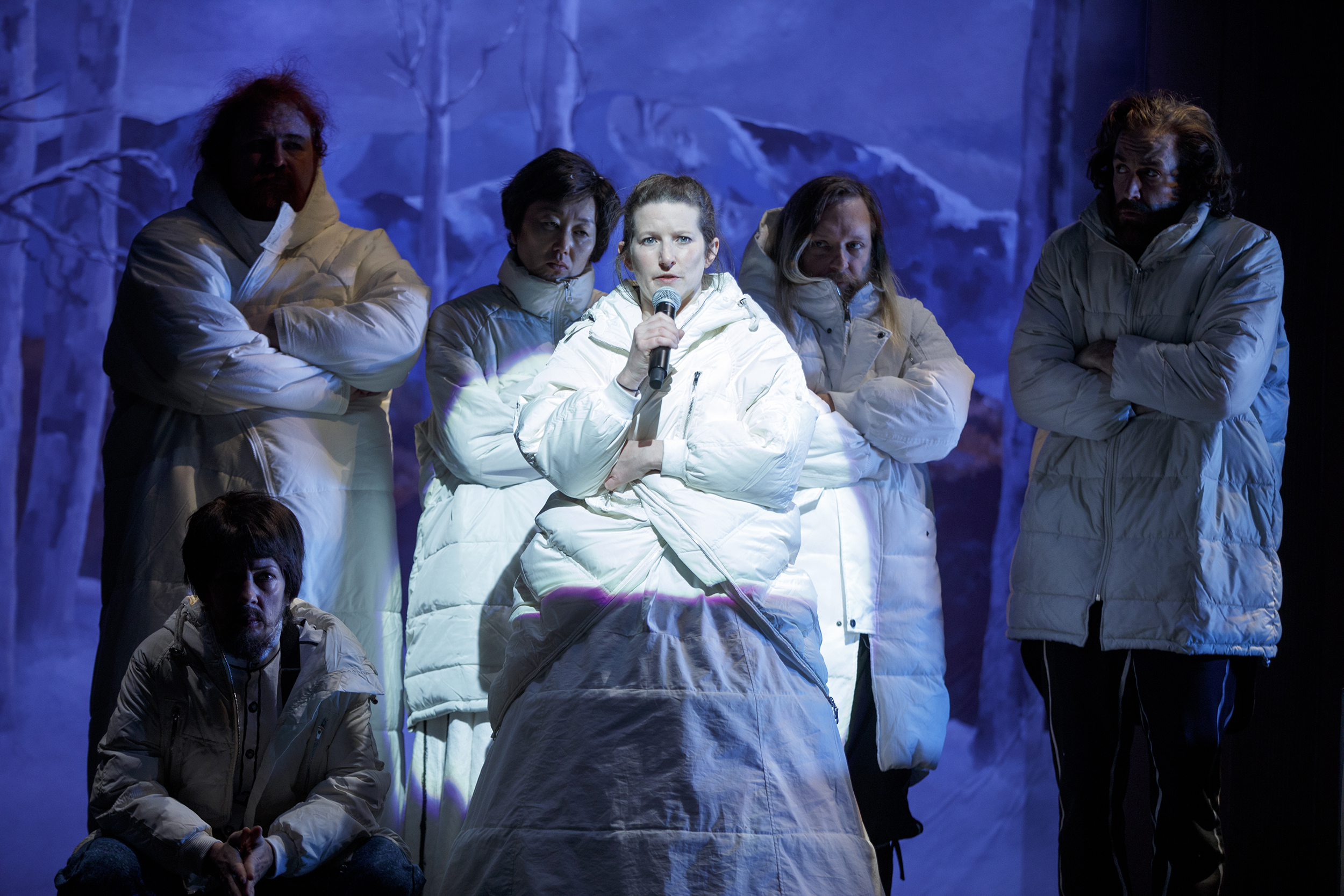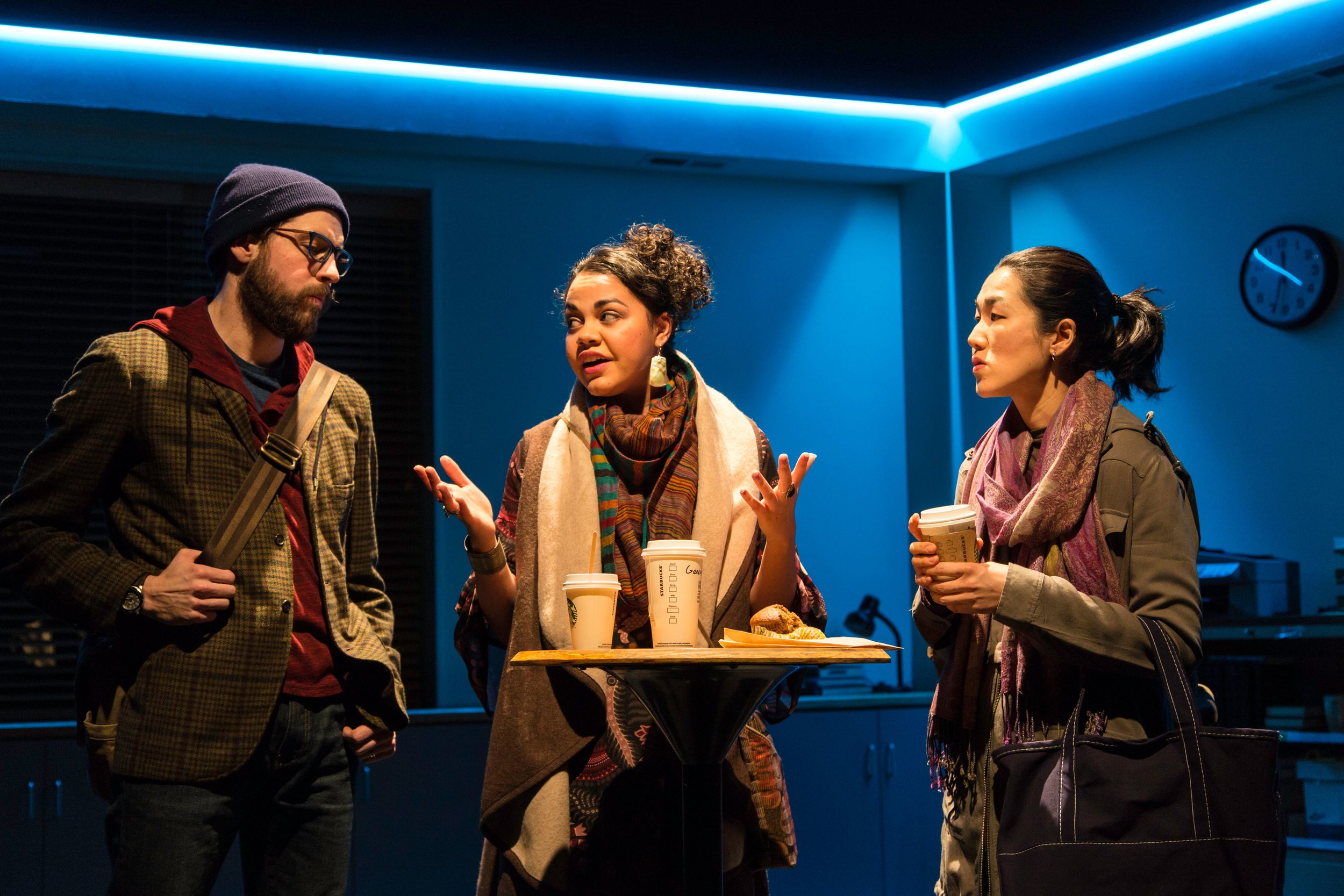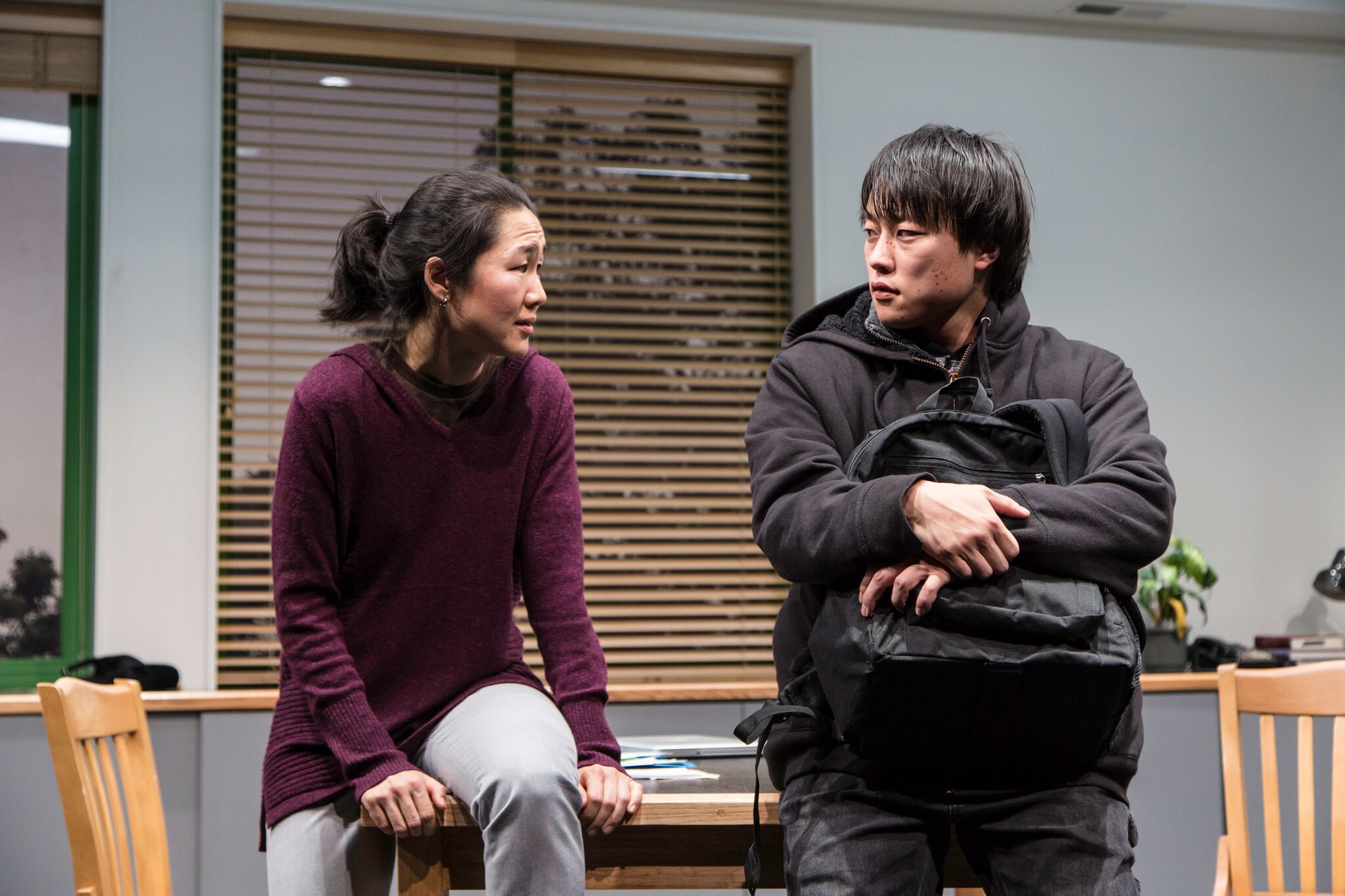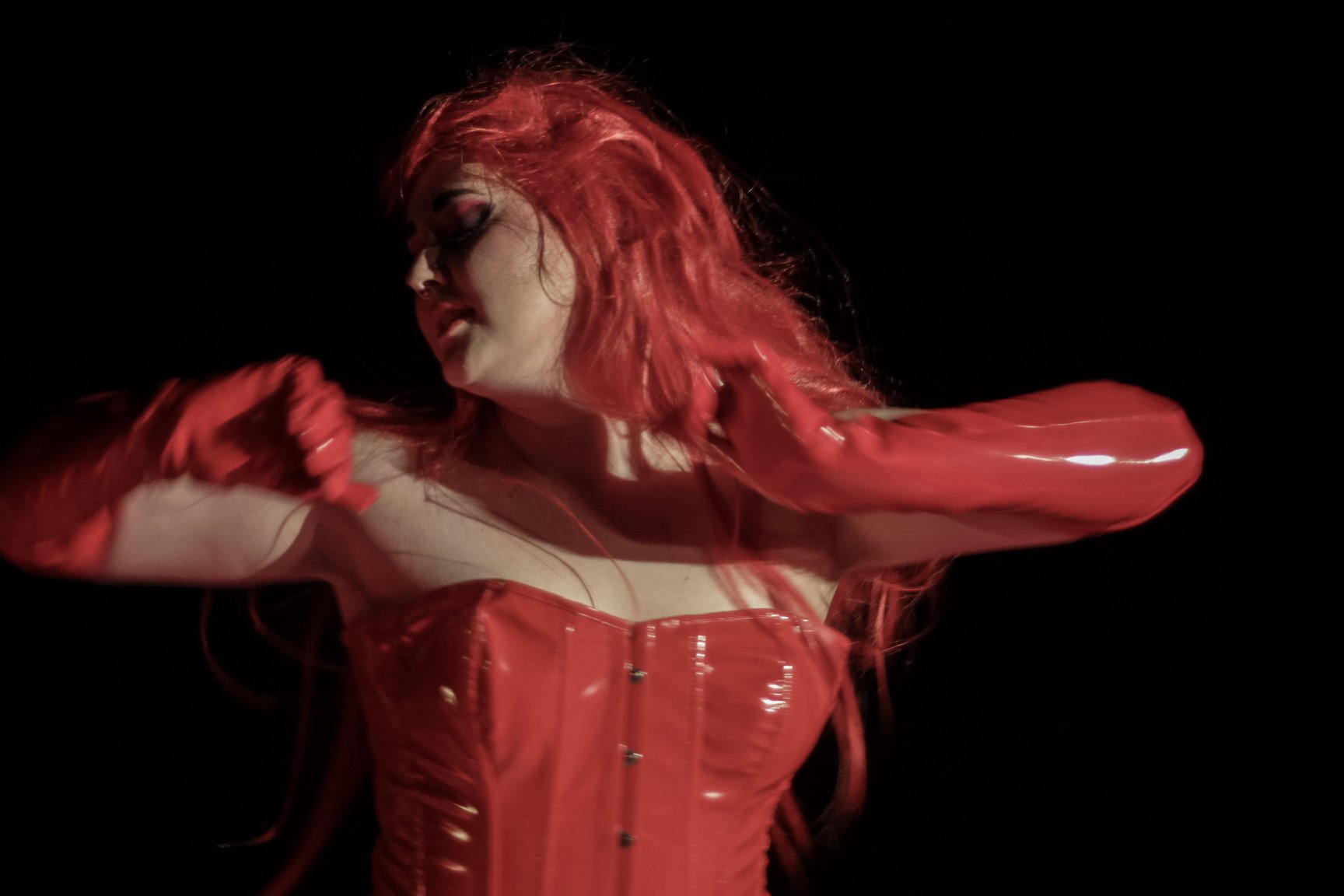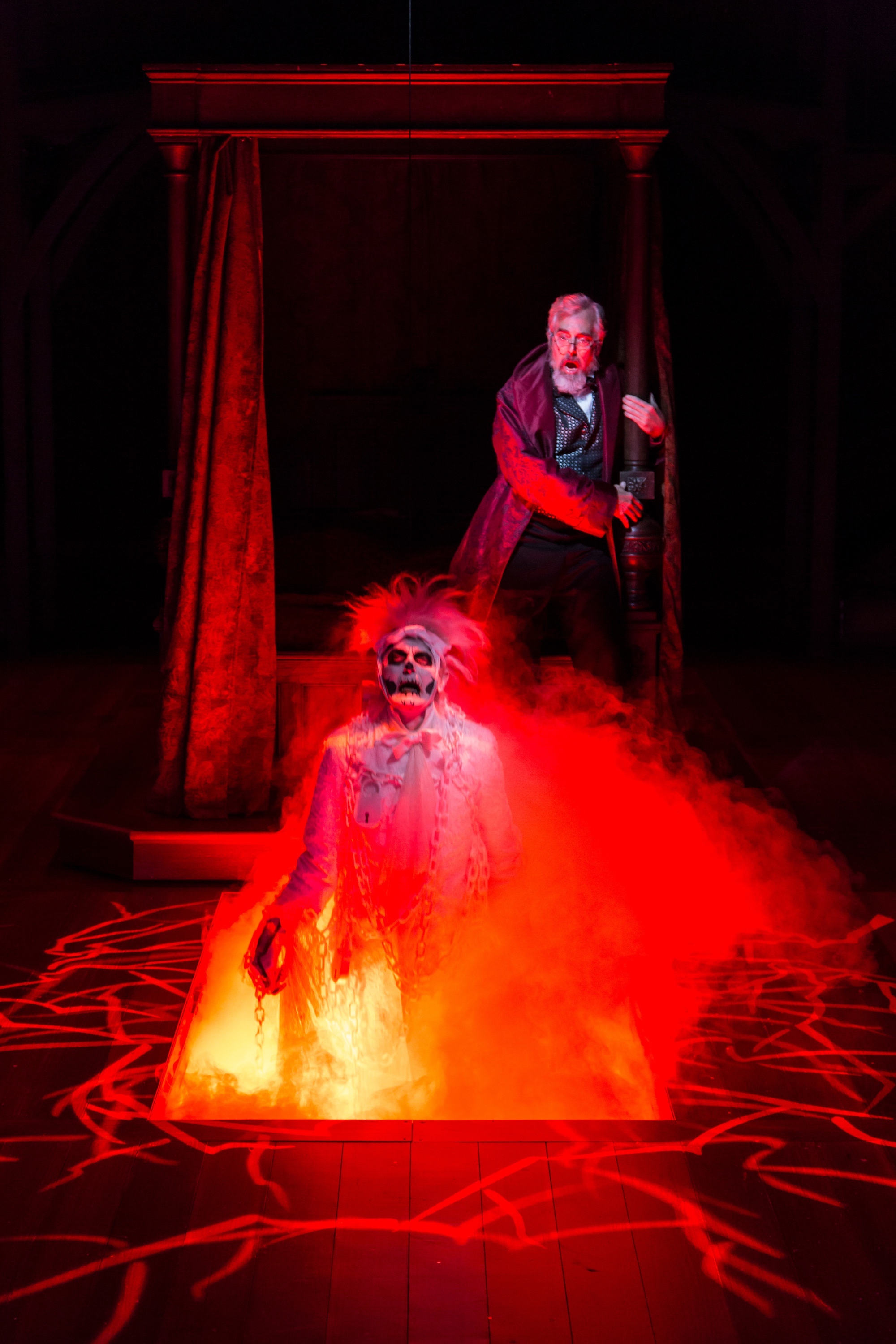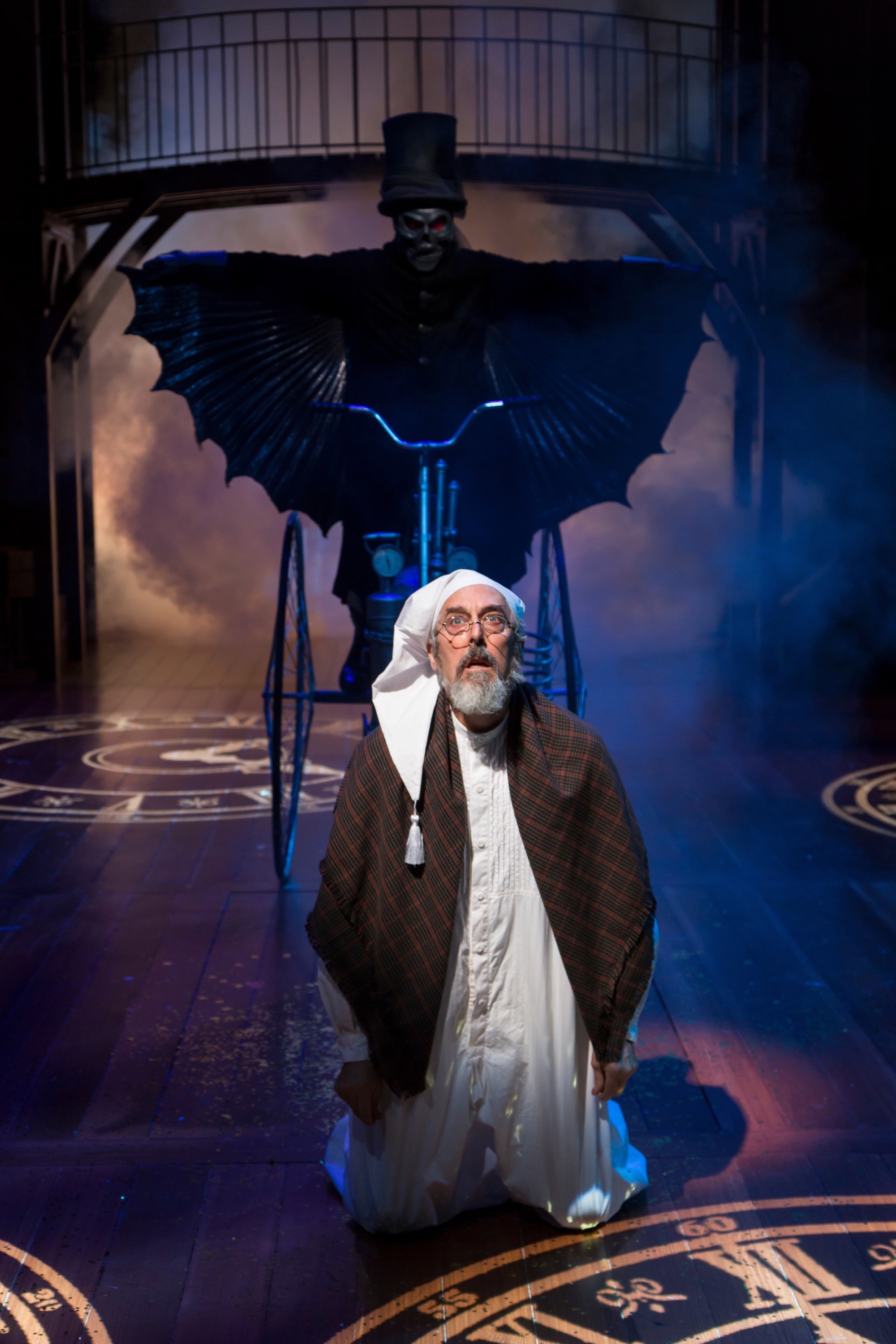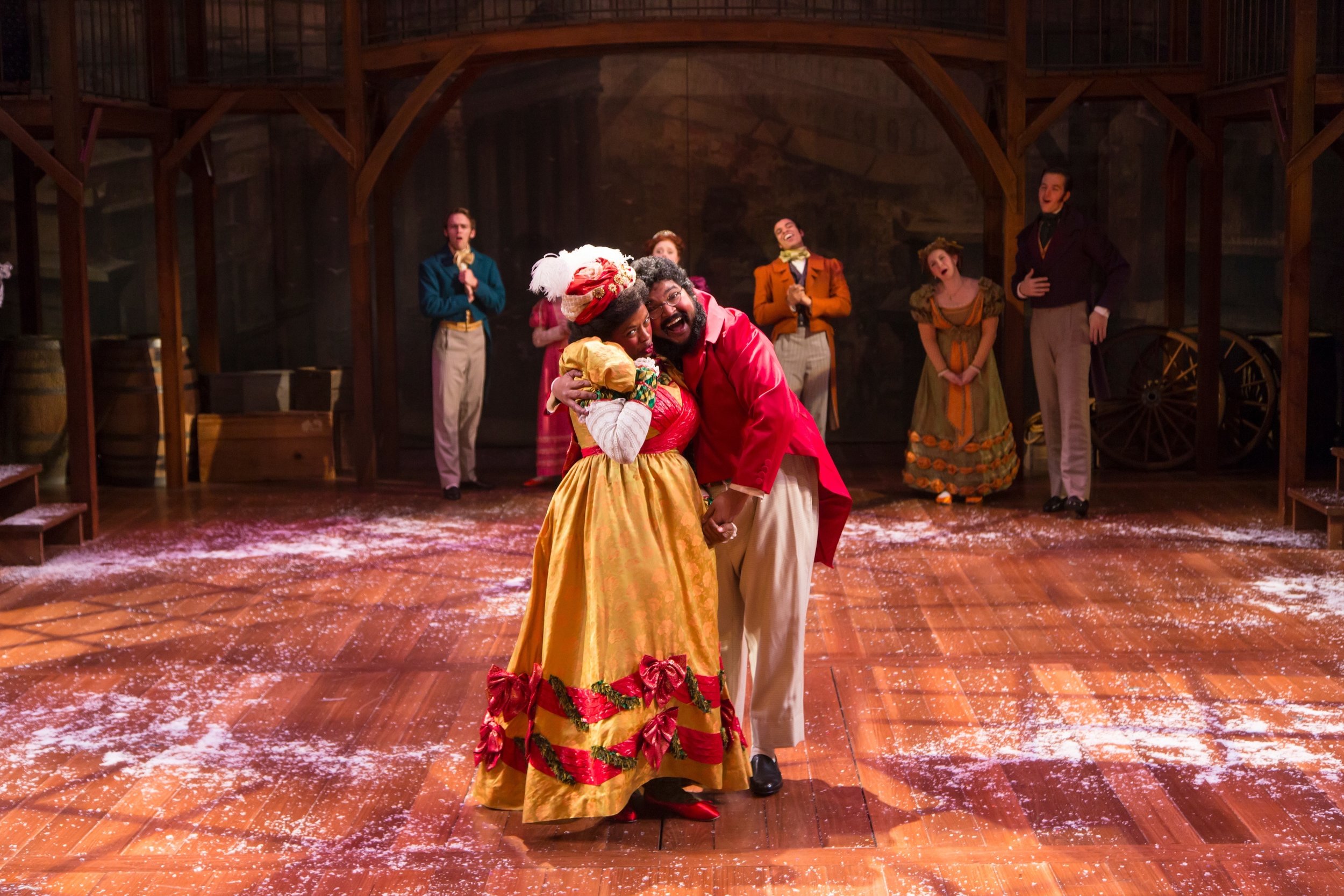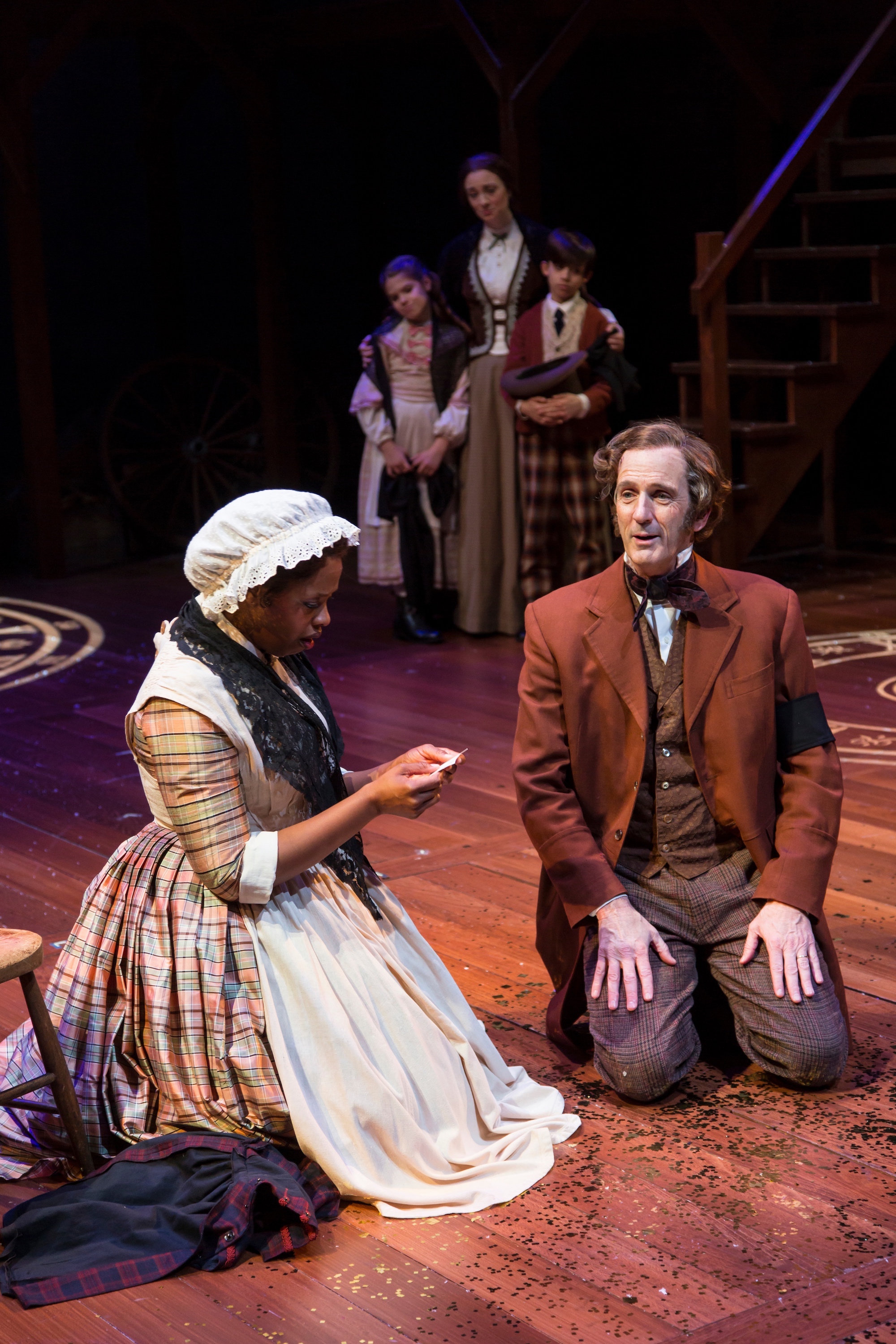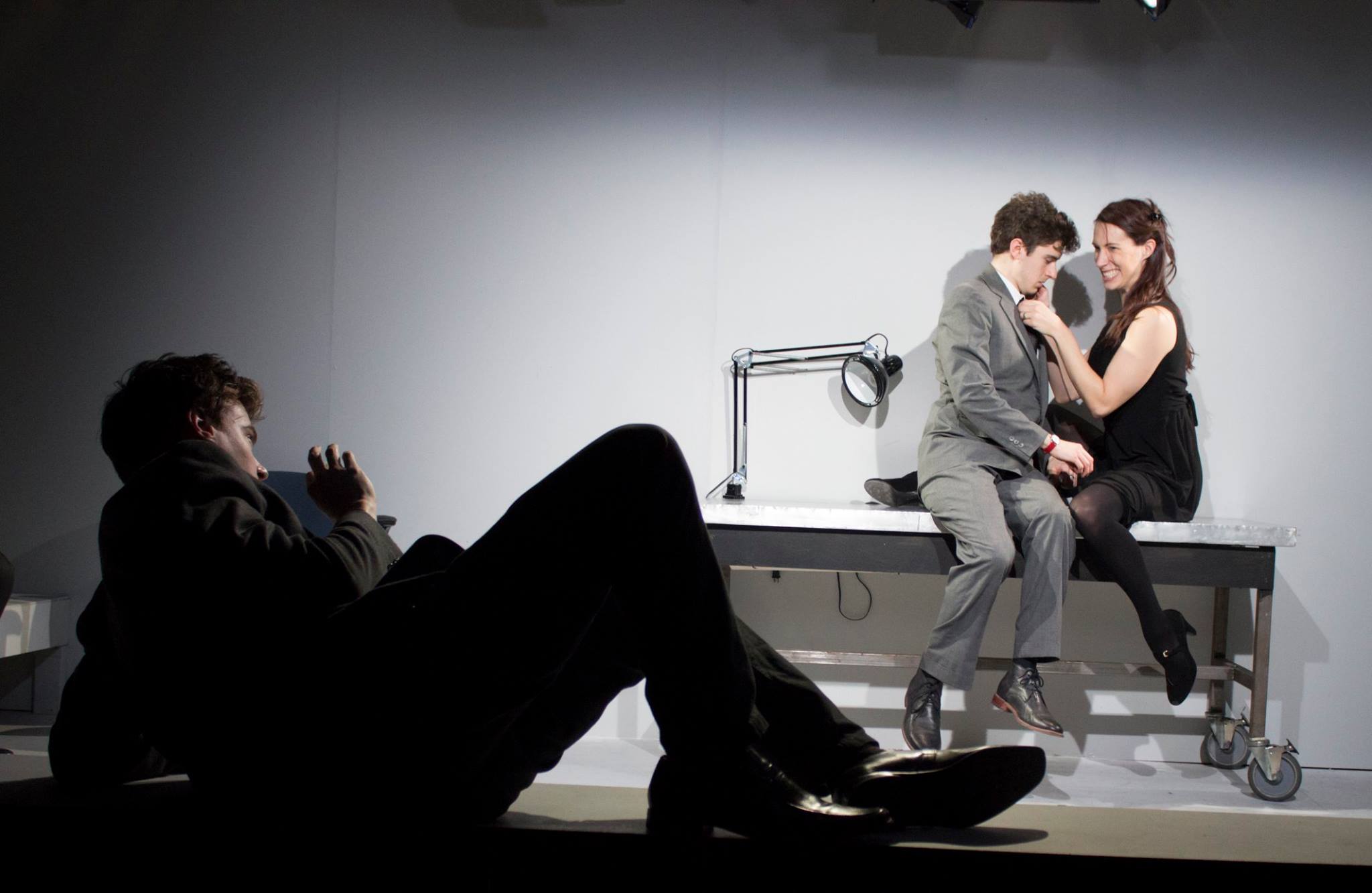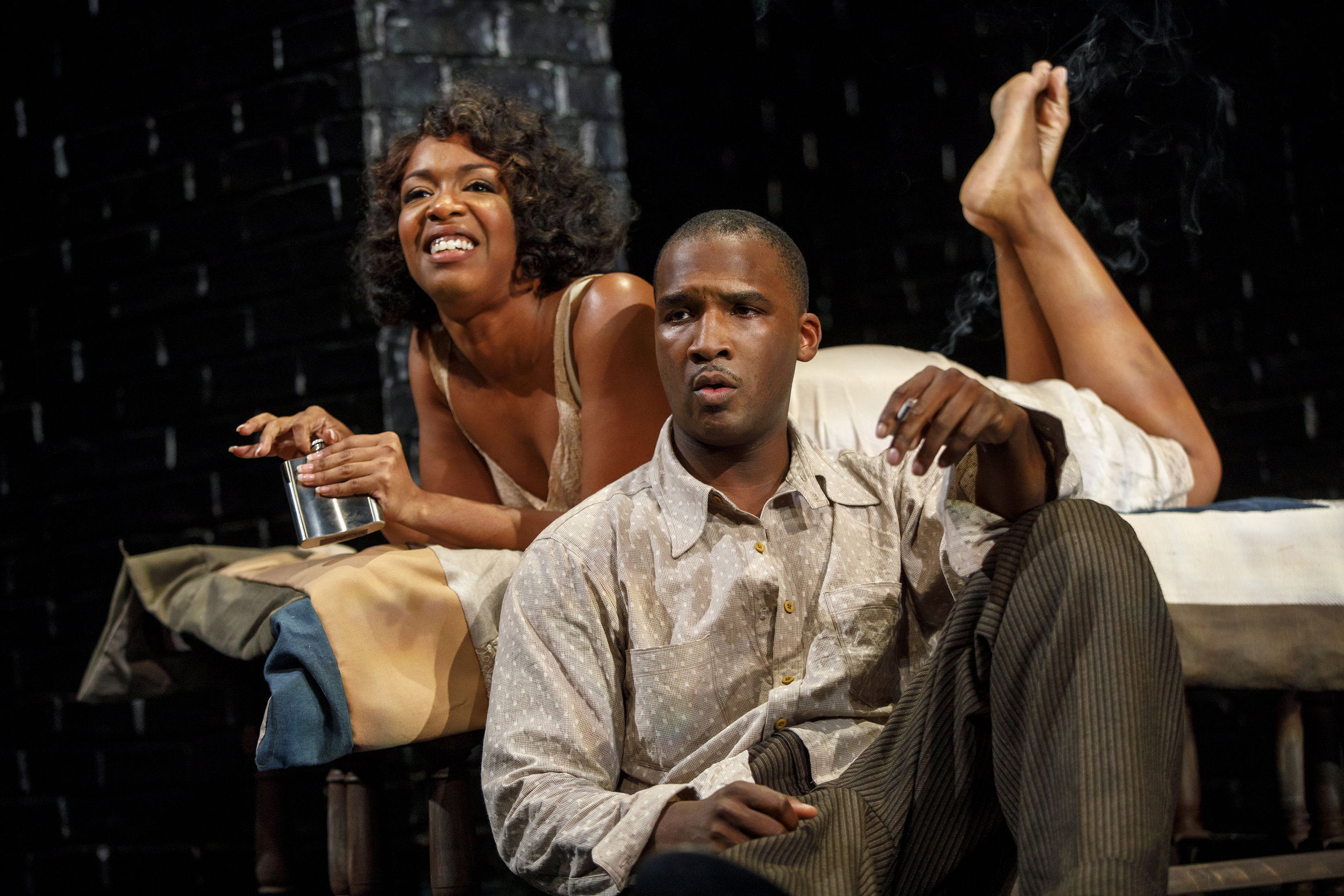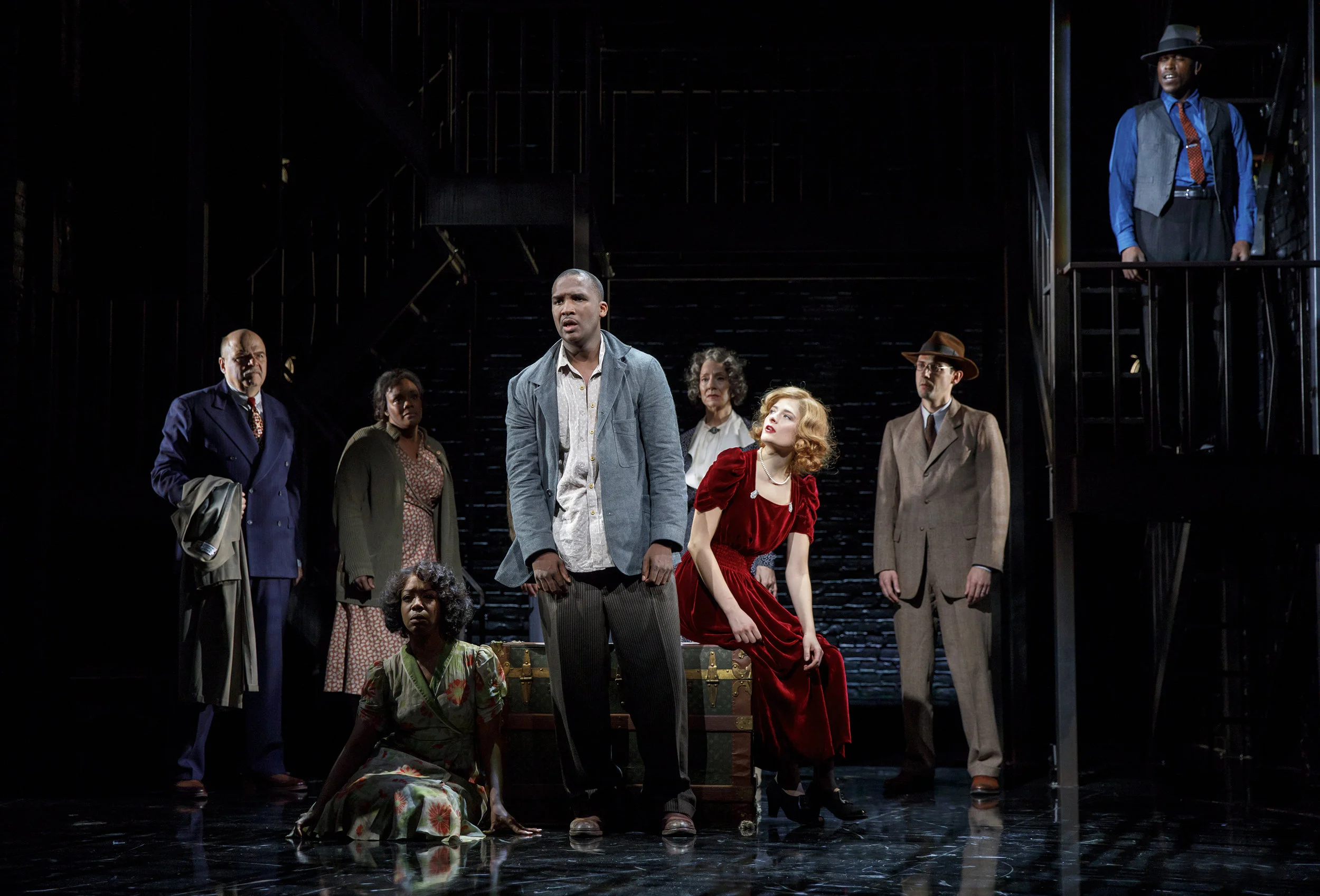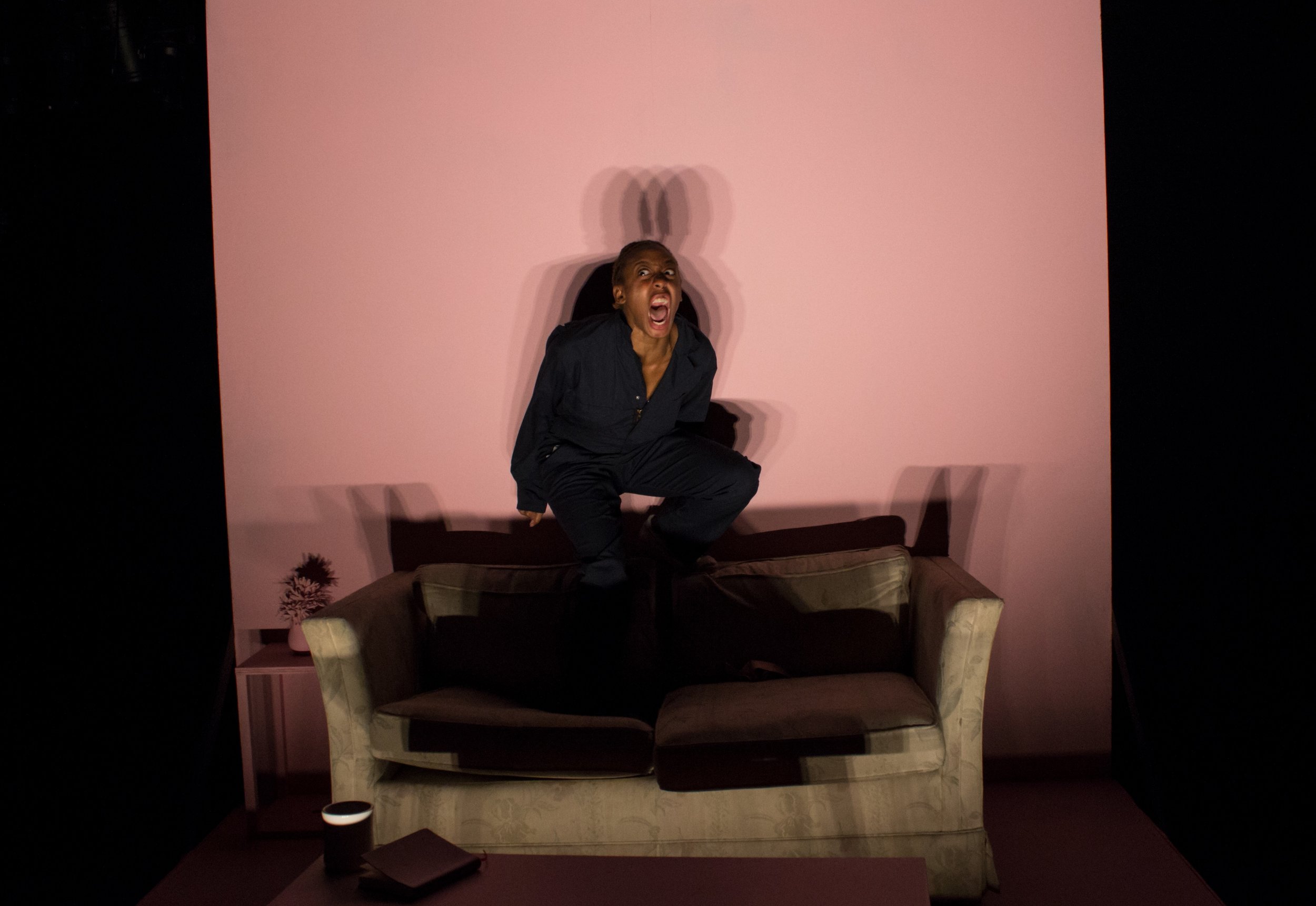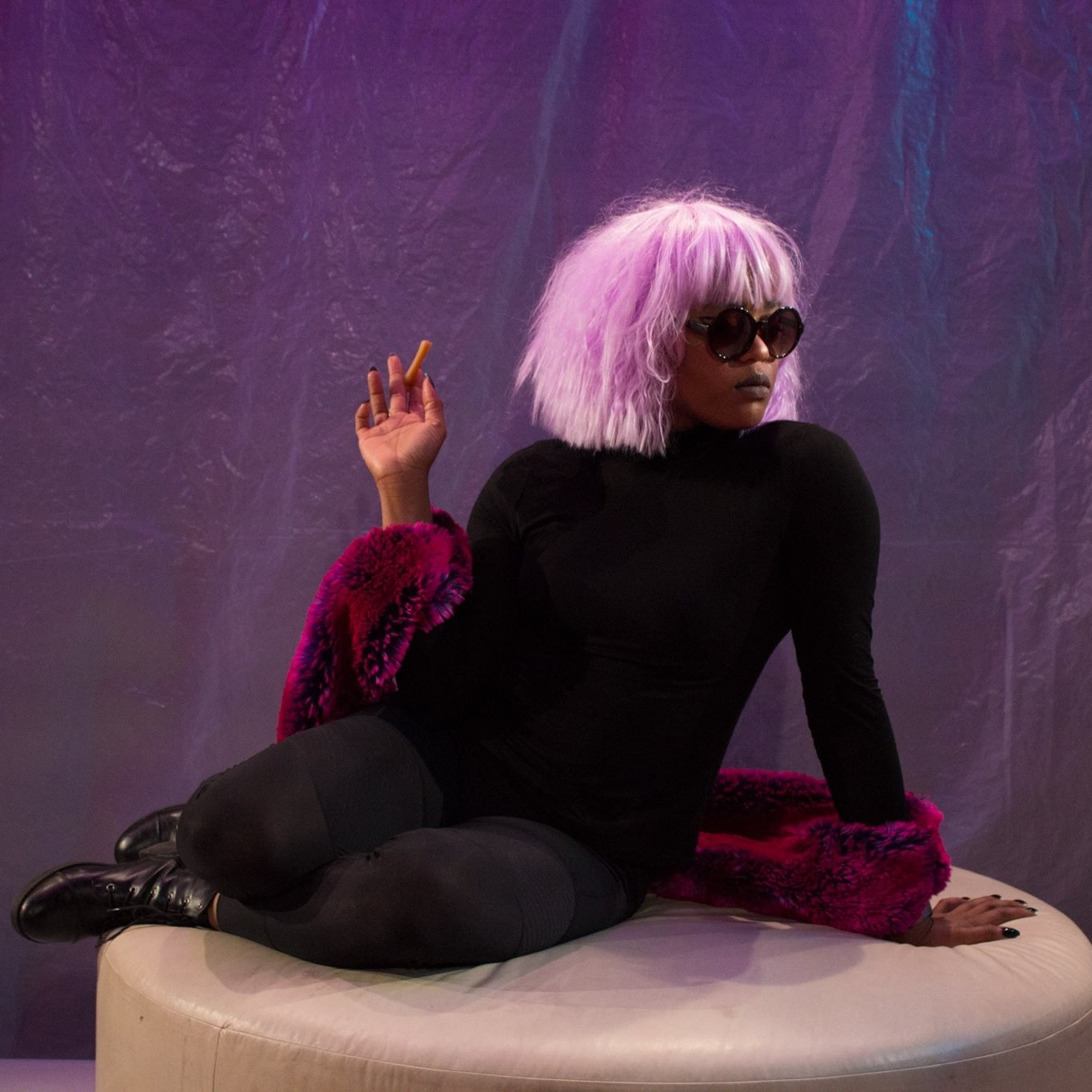Review of Passion, Yale School of Drama
Third-year director Rory Pelsue’s thesis production of Stephen Sondheim’s Passion is an extraordinary success. The musical, which has been called “the ugly duckling” of the famed composer’s career, is Romantic to a fault, perhaps, but that’s actually a key strength of the show at the Yale School of Drama. Passion, with its deep commitment to love as an overmastering condition lovers suffer, would be a pointless exercise without sufficient depth of emotion. Pelsue’s three principals—Ben Anderson as the soldier, Giorigo Bachetti; Courtney Jamison as Clara, his lover; and Stephanie Machado as Fosca Ricci, a terminally ill woman who falls in love with Giorgio—are equal to their roles to an impressive degree.
The show belongs to the main trio, supported by a group of soldiers who are generally diverting, especially in their well-choreographed movements, if a little generic. There’s also a set-piece to dramatize some of Fosca’s troubled past, involving a bogus Austrian (Steven Lee Johnson) and Fosca’s naively trusting parents (Lynda Paul, Solon Snider). While in some ways a welcome change of pace, that segment is the least convincing part of the tale. Fosca, beleaguered by bad health, bad skin and a difficult temperament, doesn’t really need a story of being suckered by an evil rake (played by Johnson with sociopathic panache) to elicit our sympathy. And the parents! Less said the better (but for the effects Paul’s voice adds to the finale).
Of the supporting cast, Hudson Oznowicz does a creditable job as meddlesome Dr. Tambourri, a well-meaning dotard who plays unwitting match-maker between Giorgio and Fosca. As Fosca’s doting cousin, Patrick Foley shows conscience enough to pity Fosca, and anger with Giorgio when forced to suspect his favorite’s motives, but generally seems too kind to be a threat. Abubakr Ali distinguishes himself as Lt. Tasso, the most boisterous of the officers, while Patrick Madden and Stephen Cefalu, Jr., add welcome character turns as Private Augenti and Lt. Barri, respectively. John R. Colley is the put-upon cook, Sgt. Lombardi, a minor comic element, and Erron Crawford, as Major Rizzoli, gets a nice solo vocal moment, full of feeling.
Riw Rakkulchon's versatile set consists mostly of a large table, for the dinners that are the main social event of the garrison, that doubles as a bed, for trysts, and triples as a mountain a hiking party scales at one point, and is also a billiard table when needs be. The visuals are stripped down but for Clara’s rich wardrobe, a key expressive element of her character’s arc (Matthew R. Malone, costumes). We see her go from nude in silk sheets with her lover Giorgio, to beguiling undergarments and nightwear to increasingly prim get-ups, some of which boast hoop-skirts able to suggest an unattainable distance in the latter parts of the show. Without resorting to coy behavior or coquetry, Jamison puts across a married woman’s sense of the possibilities a dashing lover offers and of the proprieties by which she might lose him. Jamison’s singing voice is lovely and expressive, full of the sensual world Giorgio is losing as he draws closer to the romantic ruin that is Fosca.
Clara (Courtney Jamison), Giorgio (Ben Anderson) (photos: T. Charles Erickson)
Ben Anderson gives the strongest performance of his student career, fully evincing Giorgio’s deep uncertainty as to where his heart lies. Anderson is able to play up some of the comic awkwardness of Giorgio’s position, but when his newfound convictions are on the line, we see a man driven by a force he himself doesn’t fully understand. There are a few moments where we may feel sorry for Giorgio, so fully controlled by feminine influences. Particularly when the trio are singing “Happiness” in Scene 5, we catch a sense of the burden of being someone’s “happiness.” What is remarkable is how equal Anderson’s Giorgio is to the task, realizing that Fosca’s towering passion, for all its weight, is unprecedented and must be honored. He believes and we believe him.
Stephanie Machado, coming fully into her own, makes Fosca a haunting figure, full of bitterness. The fragile lyricism in her labile eyes, we see, captivates Giorgio, despite her lack of the more comely virtues he found with Clara. We might see Fosca as an arch manipulator who uses pity to snare a lover—and there is a wonderfully testy scene between the two when that seems to be the way Giorgio reads her as well—but we keep coming back to what Fosca finds in Giorgio. He has no choice—such is the tug of the ultimate Romance—but to become the hero she sees in him.
Fosca (Stephanie Machado), Giorgio (Ben Anderson)
Sondheim’s score makes that happen for us as well, in its lush but restrained evocation by musical director Jill Brunelle. The use of dialogue in the midst of rhapsody ably heightens these characters, lifting them out of whatever mundane trappings would impede them. When Giorgio hears the “reasonable” love of Clara in a late letter from her, he is driven all the more to the vision Fosca offers: herself transfigured by love.
It is to Machado’s great credit that she is able to manifest the beauty of this dark-hearted heroine and express Fosca’s sad and fierce attachment to life. The role requires Machado to scream, writhe on the floor, burst out in invective and play up to love with a timid insistence. Fosca’s acceptance of death and love in one breath (“to die loved is to have lived”) recalls about two hundred years’ worth of Romantic longing for a gesture that answers the need to make of love a heroic achievement. And it’s still sentimental enough for a Broadway musical! For Giorgio, her love changes the nature of life and death, and that makes Sondheim and Lapine’s Fosca a heroine for the books.
Passion
Book by James Lapine
Music and Lyrics by Stephen Sondheim
Based on the film, Passione d’Amore, directed by Ettore Scola
Directed by Rory Pelsue
Choreographer: Shadi Ghaheri; Music Director: Jill Brunelle; Scenic Designer: Riw Rakkulchon; Costume Designer: Matthew R. Malone; Lighting Designer: Nic Vincent; Sound Designer: Tye Hunt Fitzgerald; Production Dramaturg: Molly FitzMaurice; Technical Director: Sayantee Sahoo; Stage Manager: Abigail Gandy
Cast: Abubakr Ali, Erika Anclade, Ben Anderson, Stephen Cefalu, Jr., John R. Colley, Erron Crawford, Patrick Foley, Courtney Jamison, Steven Lee Johnson, Stephanie Machado, Patrick Madden, Hudson Oznowicz, Lynda Paul, Solon Snider
Musicians: Jill Brunelle, piano, celeste; Kari Hustad, trumpet; Márta Hortobágyi Lambert, viola; Kay Nakazawa, violin; Jordan L. Ross, percussion; Jennifer Schmidt, cello; Noah Stevens-Stein, bass; Emily Duncan Wilson, flute, clarinet, bass clarinet; Leonardo Ziporyn, oboe, English horn
Yale School of Drama
February 3-9, 2018












